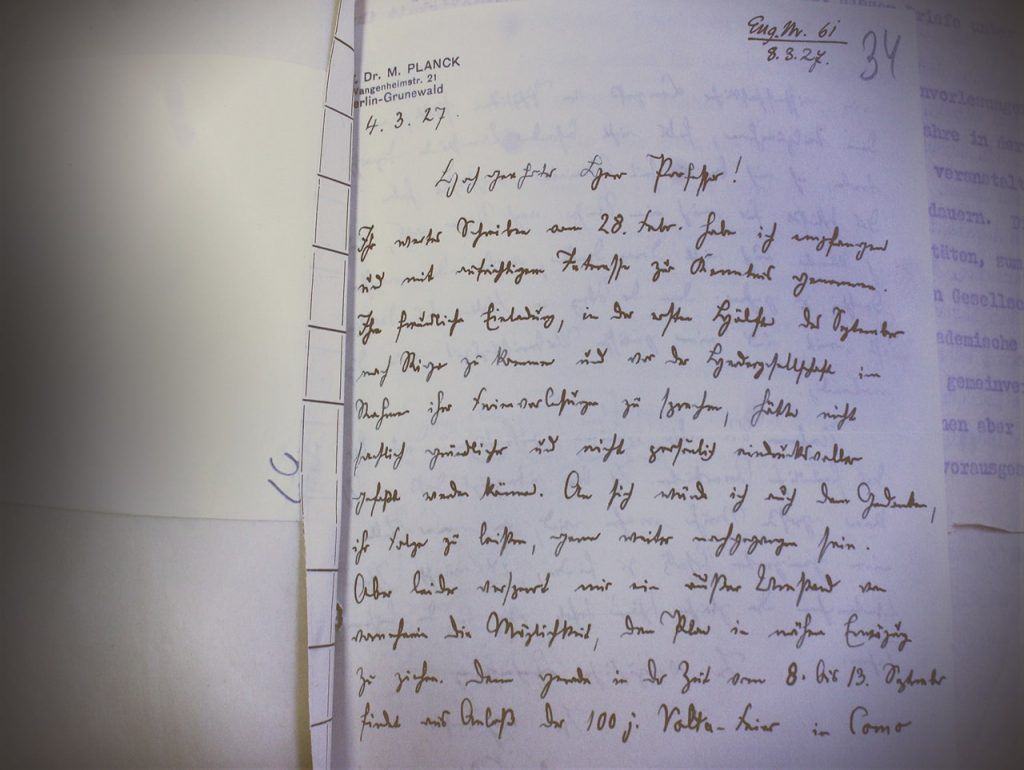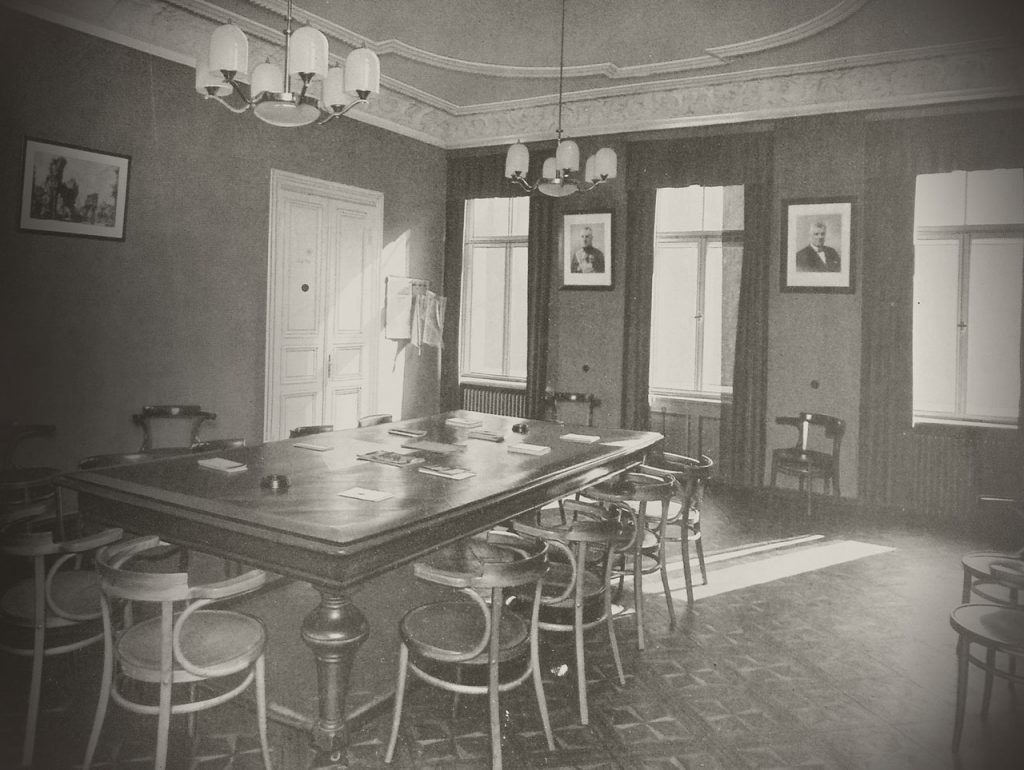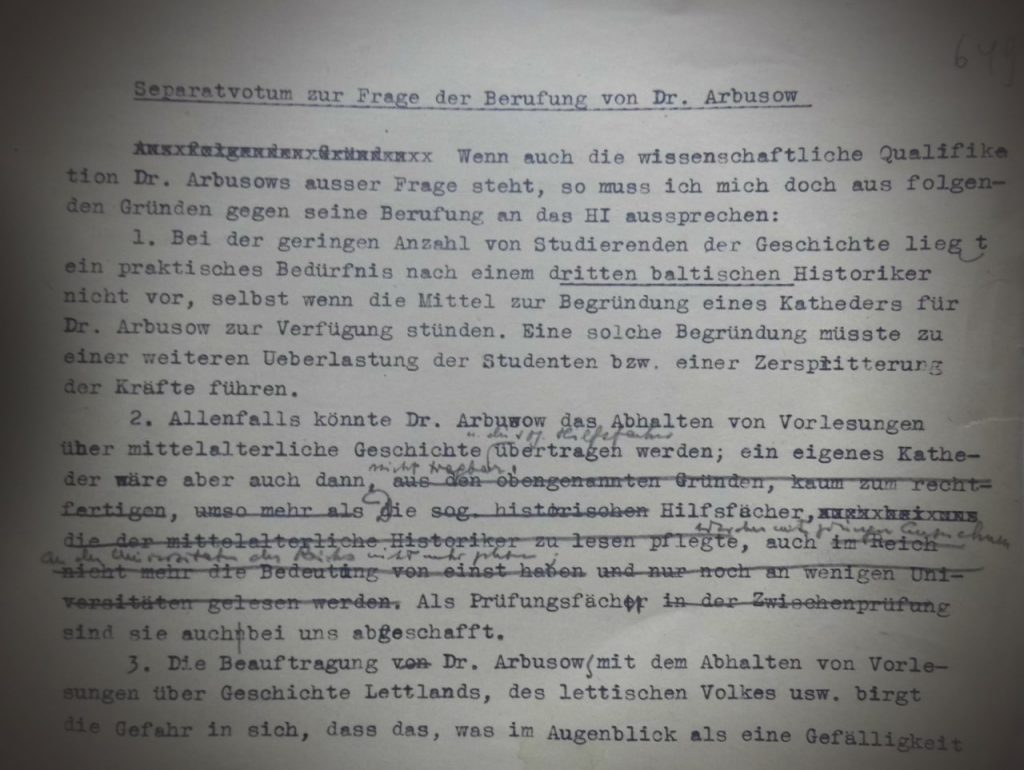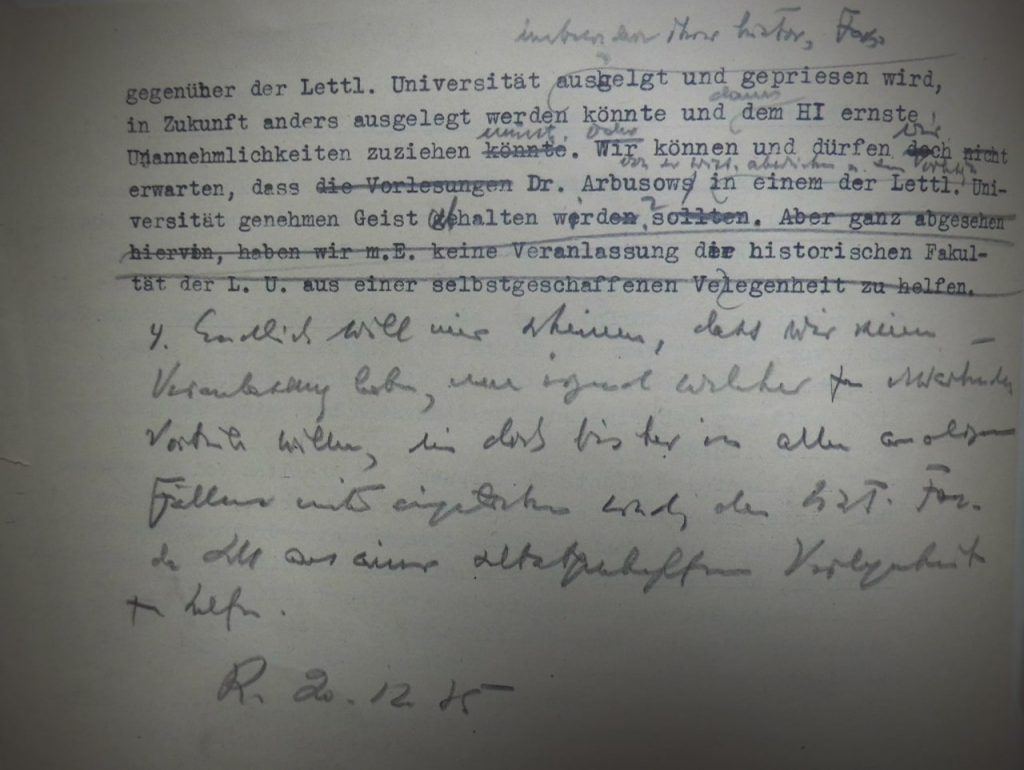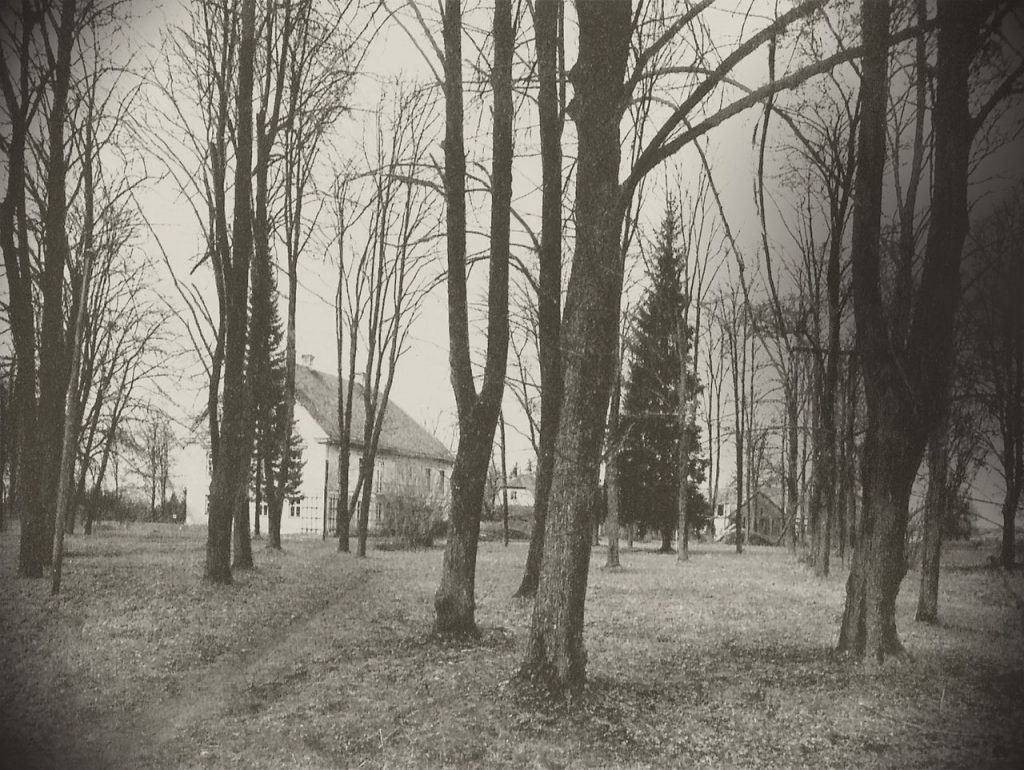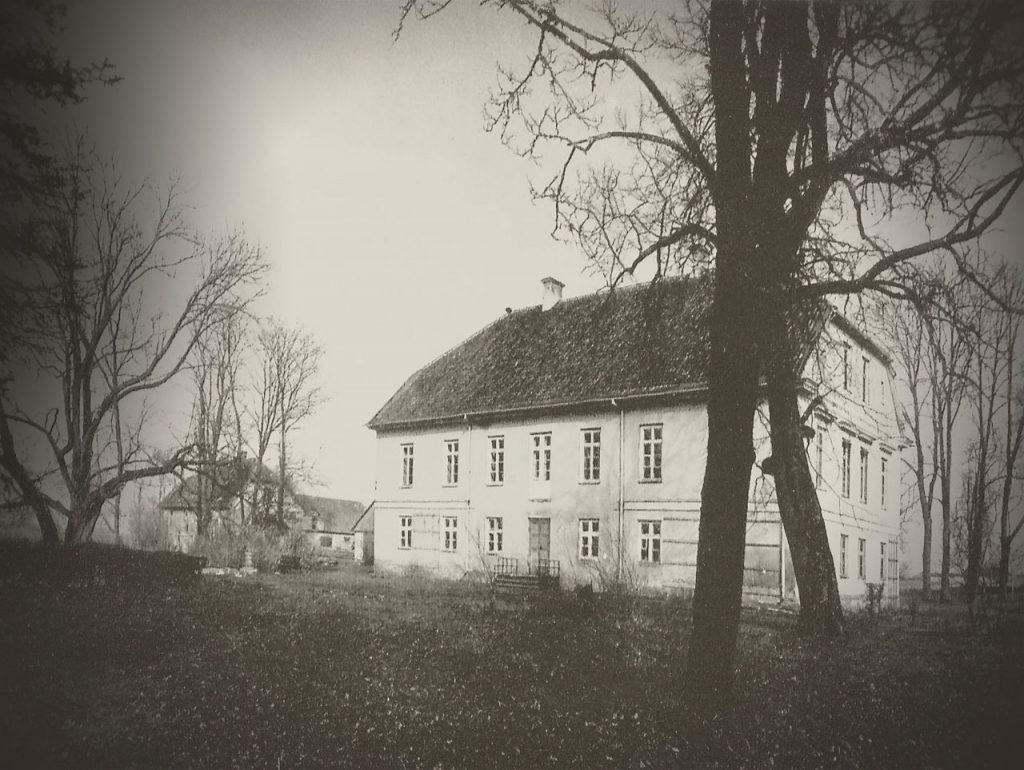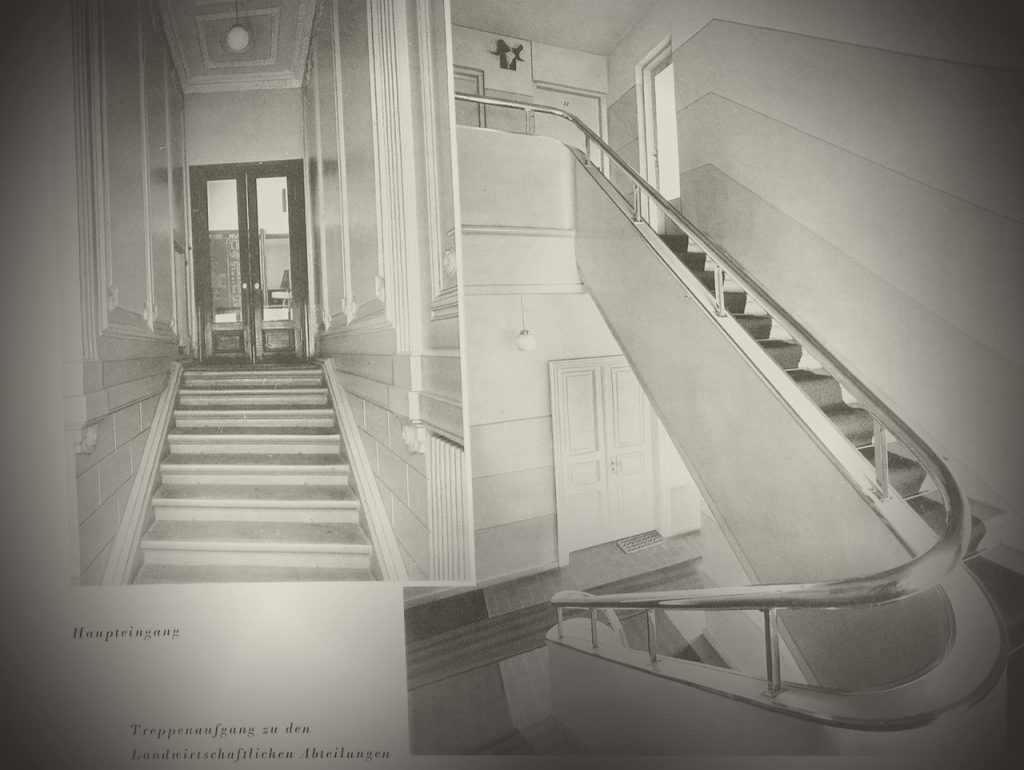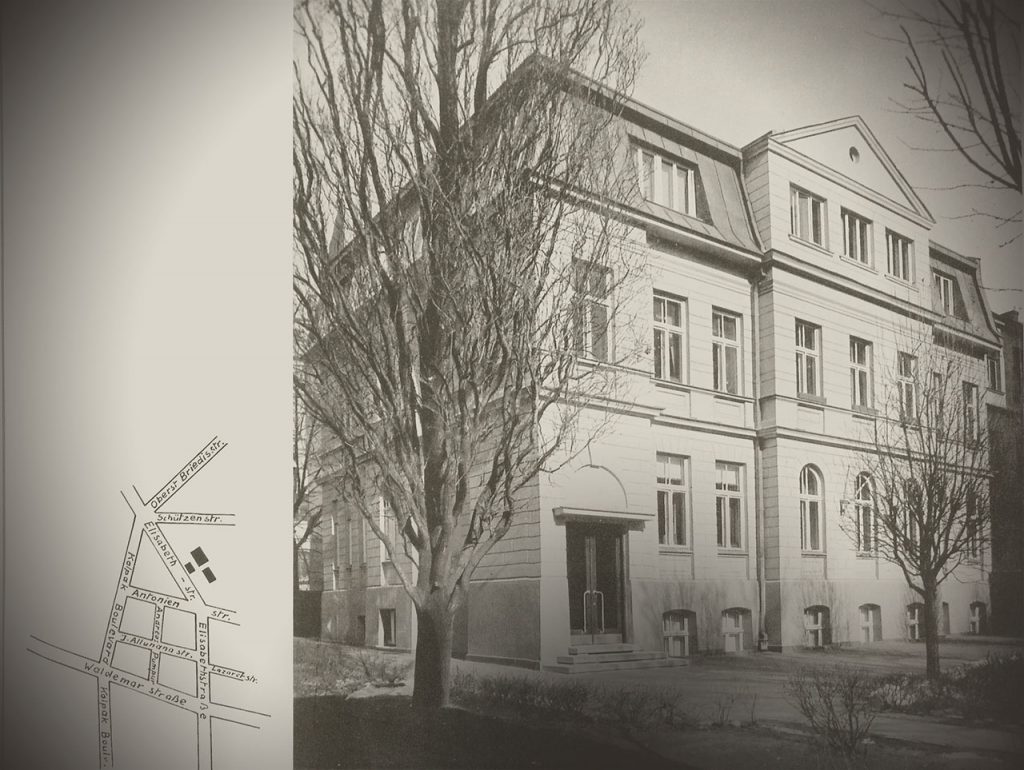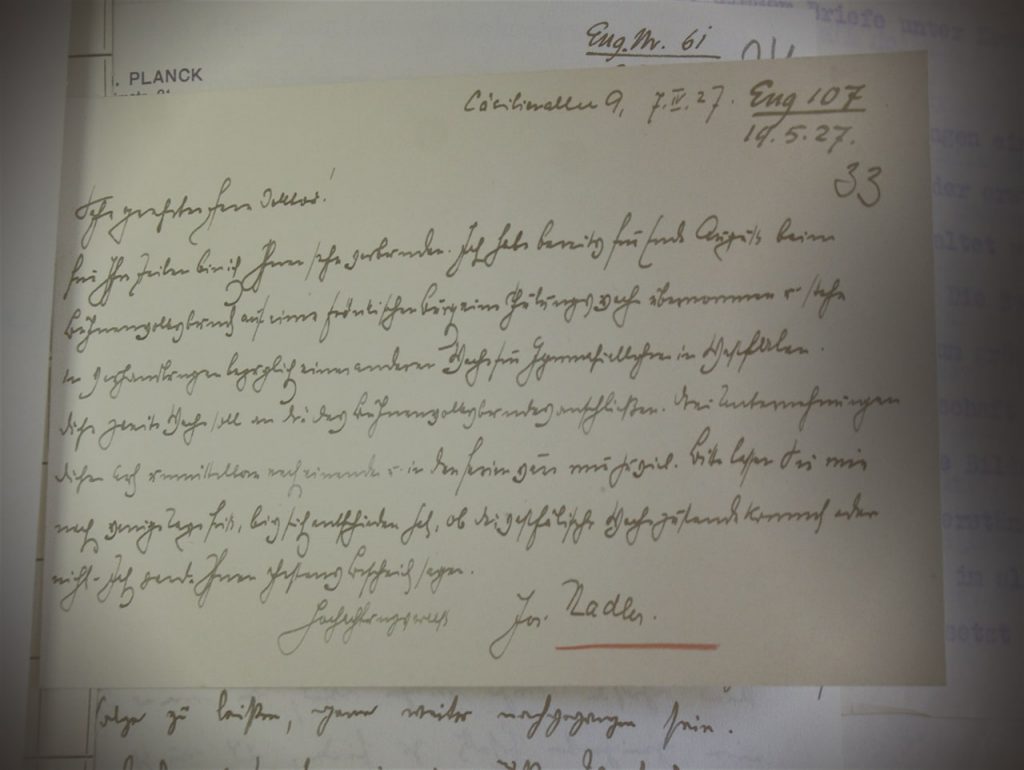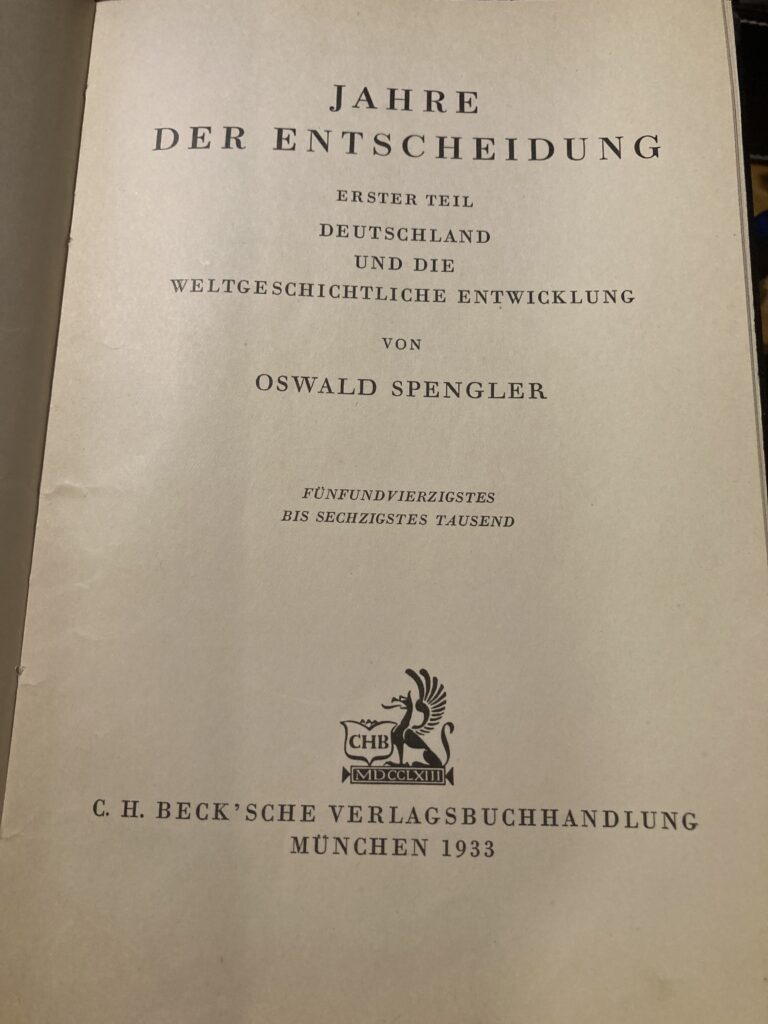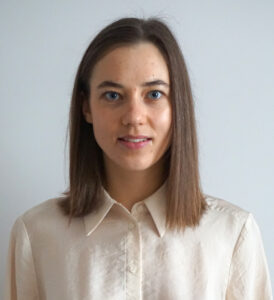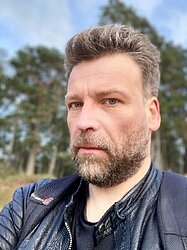On the 4th of December, 1927 the former chairman of the Herders Society in Riga, lawyer Paul Ernst Emil von Sokolowski (1860-1934) sends a letter to Oswald Spengler in which he draws attention to the political situation in the Baltic region at that time. Among other things, this letter is a testament that Spengler’s connections to Riga and Latvia do not end after his visit in 1924. In the introduction of von Sokolowski’s long letter is written: “Unfortunately, I did not meet you in person, although I wanted to warmly greet you before leaving Munich as well as recommend you my friend and a lord from my county Eduard von Stackelberg Zutlem, who would like to discuss with you some issues regarding the Baltics. Both dark men, known to you, Kester [German ambassador, councillor in the Ministry of Foreign Affairs] and Schiemann [German Baltic politician and culture worker], together with social democrats, who have got the paddles in Latvia, established a commercial treaty with the Soviets and thus again have given our freed land to Communists and their commercial factories.” In the conclusion of the letter Sokolowski emphasizes: “Excuse me for my expectations, but as a patriot of my country, I am worried. You are seeing the importance of these problems and you will well understand the reasons for my concerns. If someone has rooted in his country as much as me, then it is not a miracle that he would become that sensitive.” (See: Oswald Spengler, Briefe 1913-1936. In Zusammenarbeit mit Manfred Schröter herausgegeben von Anton M. Koktanek. München: Verlag C. H. Beck, 1963. 543.-545. pp.).
It is intended to uncover the context of von Sokolowski’s letter, O. Spengler’s connection to Riga and Latvia, as well as his view towards the history of the Baltic region and political actualities in the HeInRi research group’s publication in the journal “Forschungen zur Baltischen Geschichte” (2021/2022).
